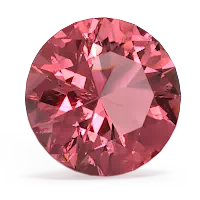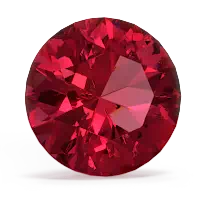

The gemstone is the star in these elegant Pink Tourmaline solitaire pendants. Pink tourmaline is a birthstone of October, along with opal, and is a truly special gem. The deep rosy color of a pink tourmaline ring will be sure to attract attention. Gem of hot summer nights and steamy red sunsets, ruby is the birthstone of July. Show the world the passions within you with a fiery ruby ring.